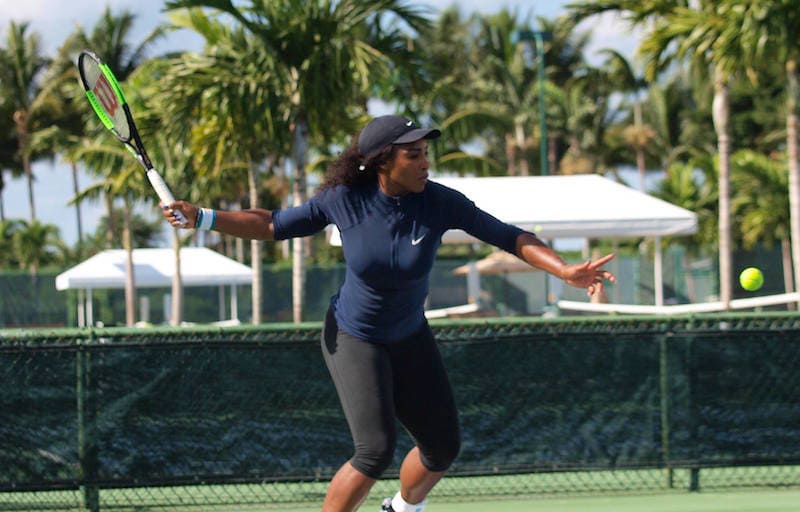
Serena Williams shocked the world when she announced she is pregnant in mid-April. Her social media post with the caption “20 weeks” sent waves throughout the sports and entertainment worlds. As soon as fans and journalists heard how far along in the pregnancy she is, it didn’t take them long to figure out what for some is the most shocking thing of all: Serena Williams won the Australian Open while eight-weeks pregnant.
Now that the shock has worn off, we decided to take a look at whether or not Serena’s feat was as shocking as we believe. What we discovered is that for those in the medical field, or women who have gone through pregnancy, it’s not as shocking. Her win was record-breaking. It was amazing for what it is – 35-year-old Serena Williams beat her older sister Venus to win her 23rd Grand Slam title while pregnant. But the pregnant part may not have as big of an effect as many people would think.
According to various OB-GYNs, the Office of Disease Control and Health Promotion (ODCHP) and the American Congress of Obstetricians and Gynecologists (ACOG), exercising while pregnant is healthy and is encouraged. Per the ODCHP, physical activity while pregnant benefits women’s health overall. Of course, the different organizations and OB-GYNs all suggest women speak with their doctors to carve out a workout plan that is fitting for each individual woman.
But back to Serena Williams’ case. As one of the top tennis players in the world, Williams continued to compete at a top level early in her pregnancy. An Associate Professor of Women’s Health in Obstetrics and Gynecology Maternal-Fetal Medicine at the Columbia University Medical Center, Cynthia Gyamfi Bannerman, told USA Today that pregnant women endure different symptoms during their first trimester, which could have affected Williams’ game. “Certainly if she had many issues of nausea and vomiting and not sleeping well, then that might have been challenging,” Bannerman says. “But no, if she wasn’t having those symptoms — and only she would know that — then no, I don’t think it’s surprising [that she won the Australian Open].”
What would have been most concerning for Serena while playing was the heat. According to the ACOG, women should “avoid becoming overheated, especially in the first trimester. Drink plenty of water, wear loose-fitting clothing, and exercise in a temperature-controlled room. Do not exercise outside when it is very hot or humid.”
Per AccuWeather, the temperatures during the Australian Open in Melbourne this past January were between the low 20s to the mid 30s in celsius, one of the days even reaching 37 degrees.
Once we’re all over the shock of another Williams coming into this world (who will hopefully follow in his/her mother’s path and entertain us on the tennis courts in decades to come), we should all learn a lesson from Serena Williams: women’s bodies are remarkable, and pregnancy shouldn’t stop women from continuing to work out and play sports. In fact, it’s just the opposite, women should be playing sports and be active while pregnant and postpartum.
What kind of physical activity can women do while pregnant? The ACOG recommends walking or running, swimming, the stationary bike or modified yoga. Women should avoid any contact sport that puts you at risk of getting hit in the abdomen, this includes hockey, basketball and soccer. Some of the warning signs you should pay attention to are your balance, which is key to not getting injured, as well as shortness of breath, muscle weakness and chest pains. A full list of do’s and don’ts can be found in the ACOG’s frequently asked questions.
But before doing anything, every woman should consult her doctor.
So for all you women out there who are killing it in the world of sports, go get ‘em while pregnant (but please still consult with your doctor).

The greatest NBA dynasties of all time
The goal for any basketball franchise is to build a dynasty that fans and experts will be talking about for











